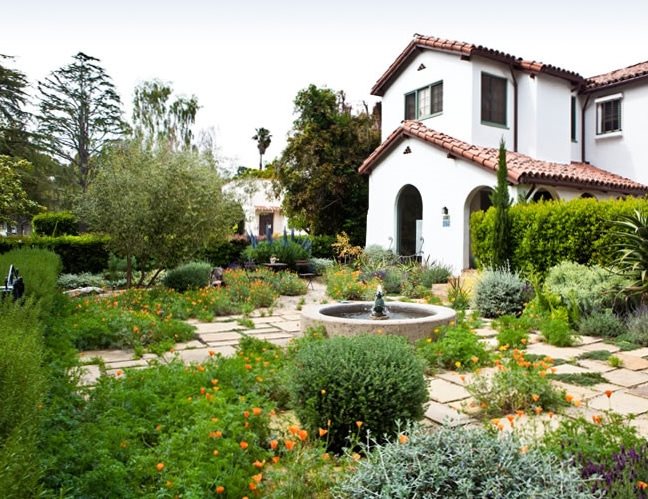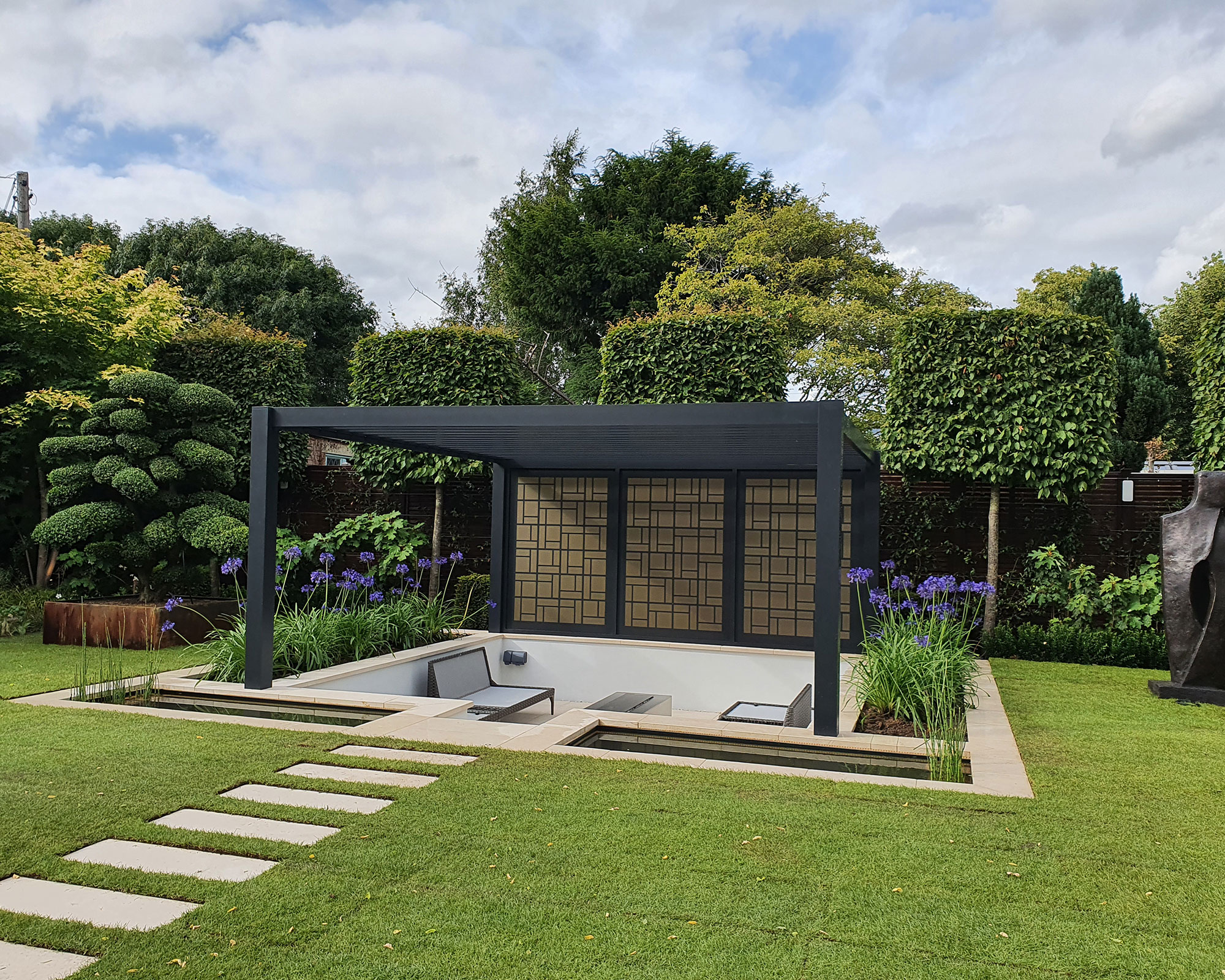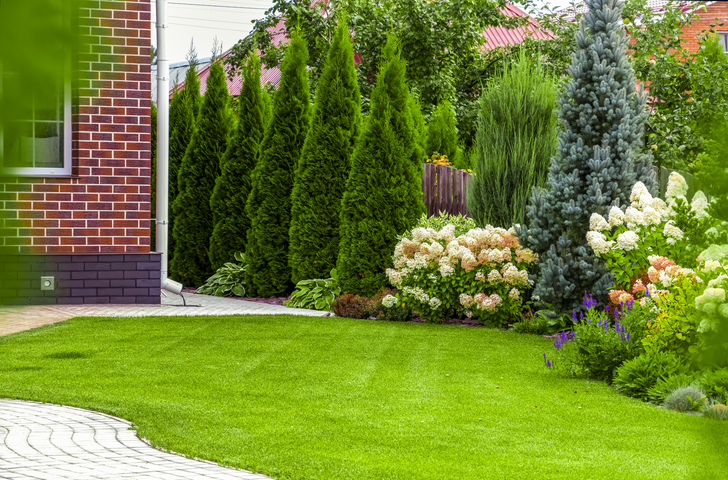The 4-Minute Rule for Hilton Head Landscapes
Table of ContentsAn Unbiased View of Hilton Head Landscapes7 Simple Techniques For Hilton Head LandscapesNot known Facts About Hilton Head Landscapes8 Easy Facts About Hilton Head Landscapes ExplainedHow Hilton Head Landscapes can Save You Time, Stress, and Money.Unknown Facts About Hilton Head LandscapesA Biased View of Hilton Head LandscapesThe Best Strategy To Use For Hilton Head Landscapes
Kind compatibility is additionally a major element of unity in designone or two strikingly different forms benefit contrast and focus, yet usually all various other forms should have some similarities for a linked appearance. Texture refers to how coarse or great the surface area of the plant or hardscape material feels and/or looks.
Examples of plants with coarse appearance include philodendrons, agaves, bromeliads, hollies, palms, and hydrangeas. Qualities that create great texture consist of little vegetation; thin, strappy leaves (turfs) or high, slim stems; little, dense branches and little branches; long stems (vines); and little, fragile blossoms.
Not known Details About Hilton Head Landscapes
Most plants are average appearance, in that they can not be explained as having either crude or fine structure. They are identified by medium-sized fallen leaves with simple shapes and smooth edges. The average-sized branches are not densely spaced neither extensively spaced, and the overall form is typically rounded or mounding. Medium-textured plants serve as a background to link and merge the crude- and fine-textured plants.

To make an area really feel smaller sized, position the crude textures along the external perimeter and the fine textures closest to the viewer. The detail of the coarse texture makes the plants appear closer and makes the room really feel smaller sized. The regarded structure of plants can additionally transform with the range from the plant.
Some Known Details About Hilton Head Landscapes
Strong colors increase the comparison and make the structure show up coarser, while low-key colors can flatten structure. Hardscape with a crude texturesuch as very harsh rocks and bold, large timberstends to make all plant product show up much more moderate distinctive. Designers often develop a structure research (Figure 8) theoretically to help decide the setup of plant products.
Figure 8. Appearance research. Color in plant material and hardscape adds rate of interest and selection to the landscape. Shade is one of the most conspicuous component in the landscape and is typically the emphasis of a lot of property owners; nevertheless, it is additionally one of the most temporary aspect, typically lasting just a couple of weeks a year for individual plants.
Some Ideas on Hilton Head Landscapes You Should Know
A basic description of the color wheel includes the 3 primaries of red, blue, and yellow; the 3 secondary shades (a mix of two primaries) of green, orange, and violet; and 6 tertiary shades (a mix of one adjacent primary and secondary shade), such as red-orange. Color concept describes the partnership of shades to each various other and just how they need to be used in a structure.

Comparable (often called unified) color pattern are any type of 3 to 5 shades that are adjacent on the color wheel, such as red, red-orange, orange, yellow-orange, and yellow, or blue, blue-violet, and violet (landscapers in bluffton sc). The colors anchor are associated per various other due to the fact that they usually include two primaries blended to create a second and two tertiary colors, which means they share common residential properties
They often tend to have high comparison in between them. The most typical collections are violet and yellow, red and eco-friendly, and blue and orange. Corresponding shades are frequently located normally in flowers; a typical set is yellow and violet. Color is found in the blossoms, foliage, bark, and fruit of plants.
Hilton Head Landscapes Things To Know Before You Buy
Eco-friendly foliage in all its numerous shades is the leading color by amount, however other shades capture attention quicker because of their high comparison to the color environment-friendly. Color is additionally discovered in buildings, rocks, pavers, wood, and furnishings. Many shades in natural products, such as rock and wood, are usually low-key and have a tendency to be variants of brown, tan, and light yellow.
Color is a crucial component for creating interest and selection in the landscape. Shades have homes that can impact feelings, spatial perception, light quality, balance, and emphasis. One building of color is described about temperaturecolors seem trendy or cozy and can affect feelings or sensations. Cool colors tend to be calming and must be utilized in areas for leisure and serenity.
Excitement About Hilton Head Landscapes
The "temperature level" of shades can also influence the assumption of range. Amazing colors often tend to recede and are perceived as being further away, making an area really feel bigger. Warm shades tend to breakthrough and are regarded as being better, making a room feel smaller. Shade can likewise be made use of to capture focus and straight views.
For instance, bright yellow, which has the greatest strength, likewise has a high comparison with all other shades (frequently referred to as a "pop" of color) and ought to be utilized sparingly. A percentage of extreme shade has as much aesthetic weight as a big quantity of a more suppressed or weak color.
Comparable (occasionally called harmonious) color design are any three to 5 shades that are adjacent on the shade wheel, such as red, red-orange, orange, yellow-orange, and yellow, or blue, blue-violet, and violet. The shades are relevant to each other because they commonly include 2 primaries blended to develop an additional and 2 tertiary shades, which suggests they share common properties.
Hilton Head Landscapes Fundamentals Explained
They have a tendency to have high comparison between them. The most common sets are violet and yellow, red and eco-friendly, and blue and orange. Complementary shades are often discovered naturally in flowers; an usual set is yellow and violet. Shade is found in the blossoms, vegetation, bark, and fruit of plants.
Environment-friendly foliage in all its numerous tones is the leading shade by amount, however other shades record attention quicker as a result of their high contrast to the shade green - landscaping hilton head sc - https://www.edocr.com/v/n3mz8xkl/stevenagonzales/hilton-head-landscapes. Shade is likewise found in structures, rocks, pavers, timber, and furniture. A lot of shades in all-natural materials, such as stone and wood, are typically muted and often tend to be variations of brown, tan, and light yellow
Some Known Questions About Hilton Head Landscapes.
Color is a vital aspect for developing interest and range in the landscape. Shades have buildings that can impact emotions, spatial perception, light top quality, balance, and focus. One building of shade is defined about temperaturecolors show up to be amazing or cozy and can impact emotions or feelings. Trendy colors have a tendency to be soothing and need to be made use of in areas for leisure and tranquility.
Trendy colors often tend to recede and are perceived as being further away, making an area feel bigger. Shade can likewise be utilized to capture interest and straight views - https://www.ted.com/profiles/47214730.
For instance, intense yellow, which has the highest possible strength, likewise has a high comparison with all various other shades (commonly defined as a "pop" of shade) and must be conserved. A small quantity of intense shade has as much visual weight as a big amount of an extra restrained or weaker color.